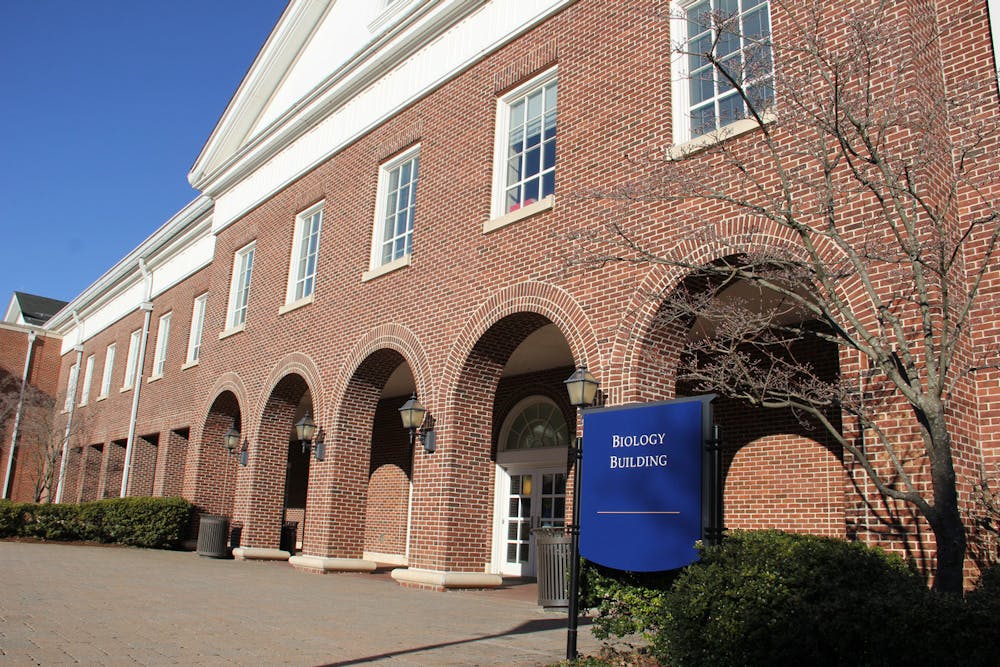By Rachel Lea
Correspondent
As part of the Biology Seminar Series, the College invited Natella Maglakelidze, an MD-PhD student, to present her research to the biology department in the physics building, room 101, on Jan. 10. She was the first of three speakers scheduled to present this semester.
Maglakelidze’s arrival was particularly special since she is a recent graduate of the College. After graduating in 2015 as a biology major, she spent two years researching at the National Cancer Institute. She is now working towards getting her MD degree at the Penn State College of Medicine after completing her PhD last November and hopes to continue researching her topics of interest as a physician-scientist in the future.
Until then, she was excited to be called back to the College to share her PhD thesis.
“I love talking to an audience about science,” Maglakelidze said. “I thought it would be nice for me to come back — one to give back and talk to student who may be interested in the same future career as myself, but also I wanted to be back and see some of my faculty mentors to say, ‘Thank you for setting me on this path, and I appreciate this.’”
Maglakelidze’s research focuses on the autoimmune regulator (AIRE), a transcriptional regulator protein found in the thymus, where white blood cells mature. In a healthy body, AIRE promotes expression of the many proteins the white blood cells, or T cells, will encounter in the body. The T cells who attack these proteins are deleted, while those who don’t are eventually released to contribute to the body’s immune system.
Thus, a lack of AIRE can result in the release of T cells which cannot tell the difference between the body’s own proteins and actual pathogens. This can result in different autoimmune diseases, but Maglakelidze specifically focuses on AIRE’s relationship with alopecia areata (AA), an autoimmune disease that results in patches of hair loss.
Despite the complicated subject, the tone of the seminar was relaxed, and Maglakelidze took the time to explain background information on AIRE and answer questions, which many students appreciated.
“I felt that the presentation was almost like telling a story,” said Kevin Acheson, a junior biology major. “In the beginning, she went into the origins of her research and then how her knowledge of that AIRE protein progressed overtime and how her hypothesis evolved as she did further experiments. It flowed very nicely, and she spoke very confidently.”
Other students also enjoyed how Maglakelidze’s presentation brought awareness to autoimmune diseases and offered an overall change of pace, since the previous seminars focused more on ecological research.
“I love learning about ecology,” said Phylicia Menendez, a senior biology major. “But I’m glad that this semester, [the College] is doing more genetics and medically related [topics] for our pre-meds. This is something I’m interested in, so I was excited.”
As with the previous seminars, students could attend in person or through Zoom. The College also provided other avenues for students to interact with Maglakelidze outside of the seminar. They were invited to have lunch with her beforehand. Maglakelidze also participated in Cookies and Conversations, which is a new event in the biology department that unites students and professors with cookies and a love for the field. It immediately followed the seminar and even took place right outside room 101.
Wendy Clement, the head of the biology department, confirmed that this was not a coincidence.
“I do not always connect [Cookies and Conversations] with seminars,” Clement said. “But since we are celebrating an alum — and a rather recent alum — coming back to talk with us, it just seemed like the perfect way to have an opportunity for as many people as possible to get to see her afterwards, chat, and just keep the conversation going after the seminar.”
Although the Zoom option made it difficult to determine the exact turnout of the seminar, many students agree that having an alumna return to share her research was inspirational.
“That was actually one of the more interesting things about the seminar,” Acheson said. “It was really cool to see that someone went to the school that I’m going to and is now in a research lab and gets to go on and have such a successful career thus far. It gives me hope that someday I can do something similar.”
The next seminar will be on Friday, March 24 at 12:30 p.m. in room 101 in the physics building, as well as on Zoom. The speaker, Syndi Barish, is another alumna who will be discussing the genetics of the human heart. All majors are welcome to attend.




